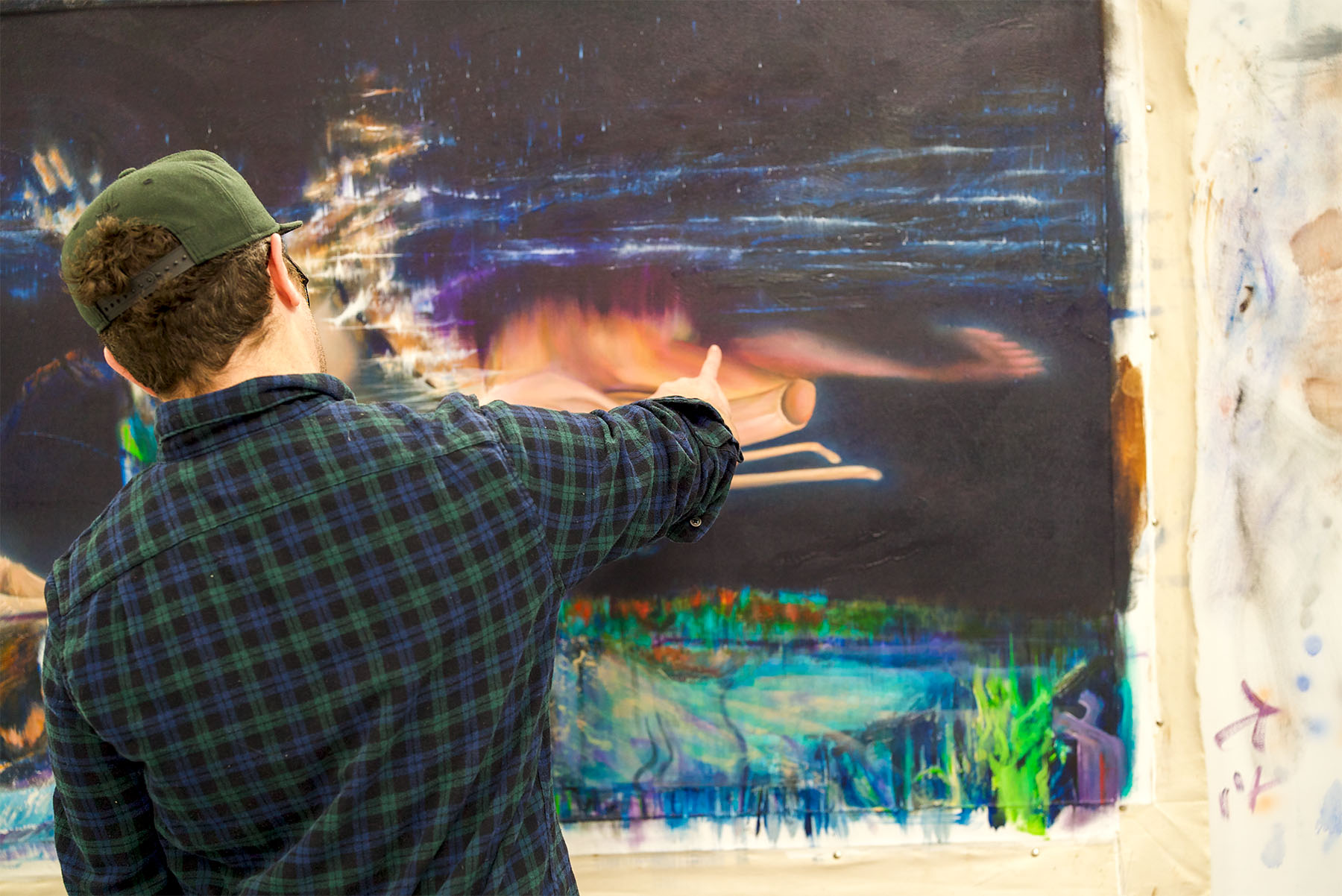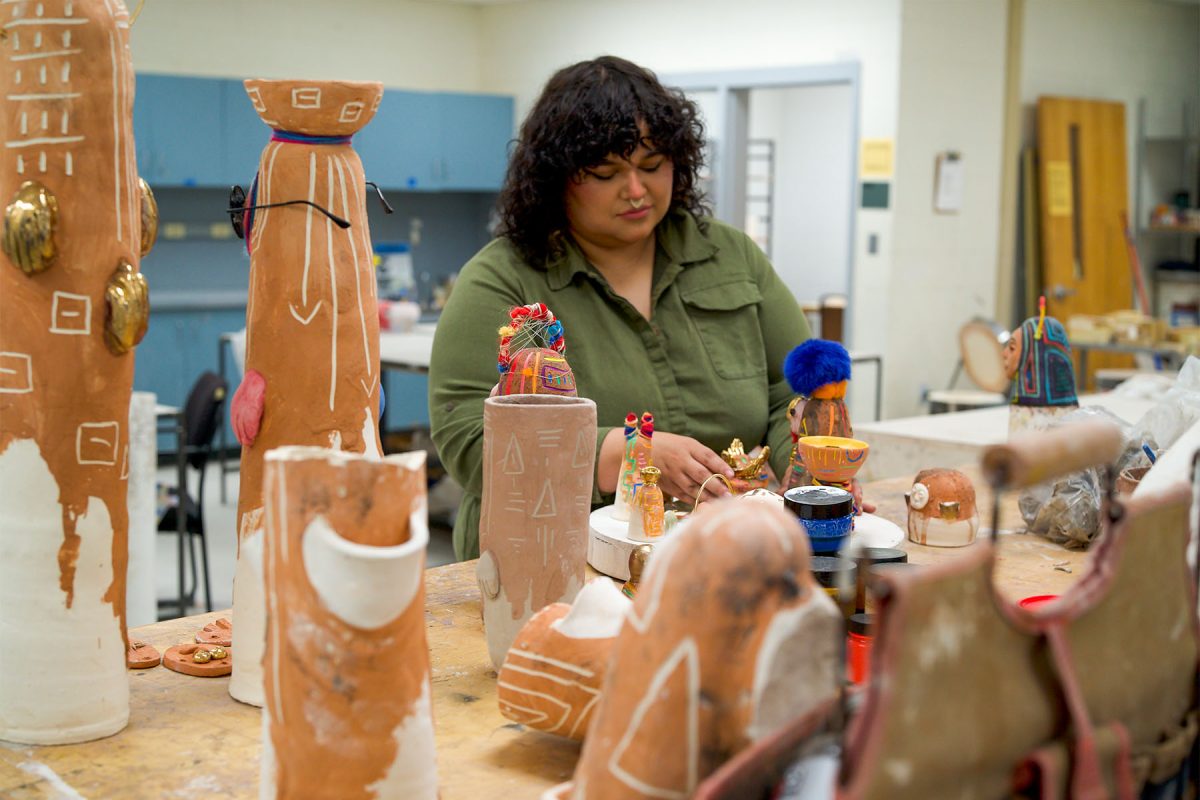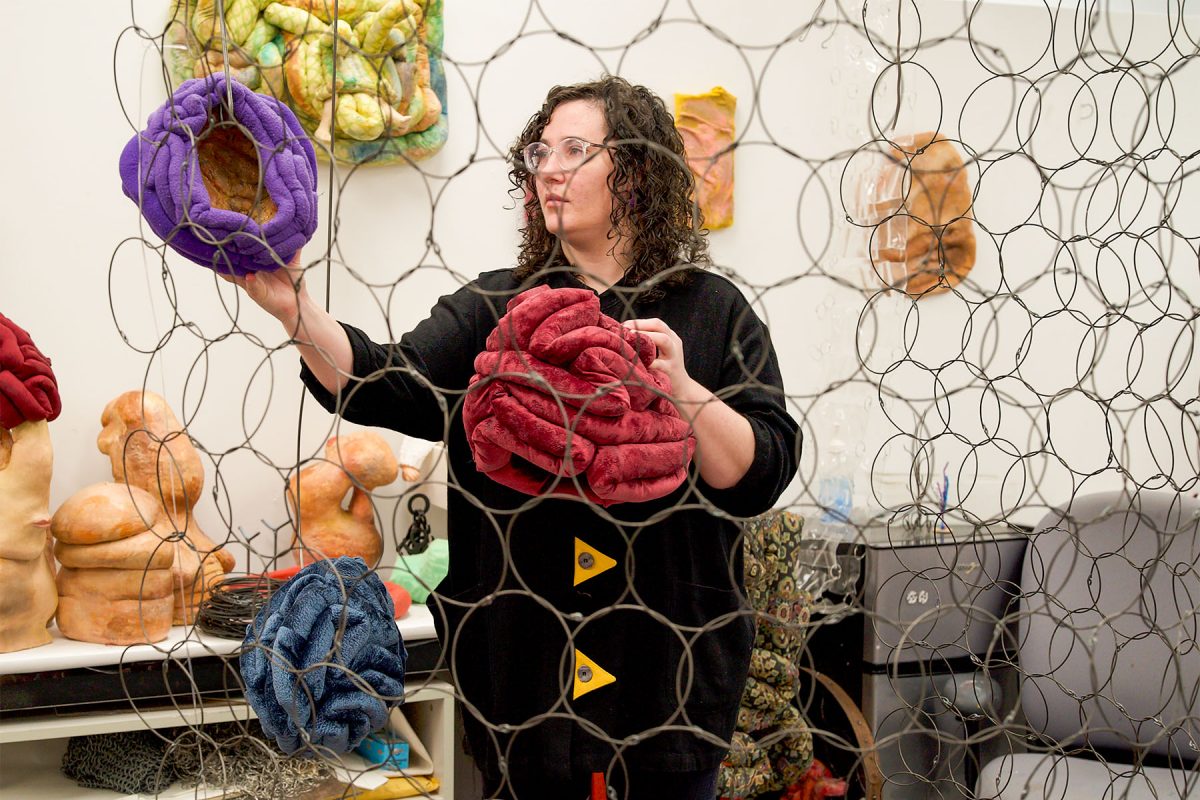
Florida State University’s Department of Art presents an exhibition of works by the 2024 Master of Fine Arts graduating class.
The exhibit, called “SEVEN,” offers a diverse collection of contemporary artworks spanning from sculpture, cinema, painting and multimedia projects and features the work of Kimberly Maria Moran Brown, Kat Chudy, Athena Nugent, Channing Salazar, Iris Eve Schaer, Morgan Smith and Mimi Tran.
The exhibit will run from April 12 through May 4, with an opening reception from 6-8 p.m. on April 12. The artists also invite the public to a meet-and-greet followed by a series of artist talks from 5-7:30 p.m. Thursday, April 18, at the Museum of Fine Arts.
“Each of the seven artists brings forth their distinct narratives as well as the culmination of three years of artistic research,” said Meredith Lynn, assistant professor of art and curator. “They invite audiences to engage with their themes of cultural identity, migration, memory, and the body.”
About the artists
Kimberly Maria Moran Brown is a Panamanian American artist currently residing in Tallahassee, Florida. A weaver of stories and mythos, Moran Brown uses personal narratives and research on Ancient Central American culture and traditions to intermingle the past and present, creating her own mythology. Her work provides a haven for kindred souls living in the betwixt and between.
Kat Chudy makes art that finds beautiful and dignified ways to show the invisible parts of being disabled. Chudy uses repetition, accumulation and embellishment to elevate the rituals and history of disability. Chudy participates yearly in the Southeastern College Art Conference (SECAC), chairing panels and presenting research on access and disability aesthetics. They have won numerous awards, including second place and honorable mention at the SECAC annual juried exhibition and Best in Show at the Turner Annual Spring Into Art show. They engage in a practice of platform and culture building through their podcast “DIY Access” and knowledge-sharing base, the Access Rhizome.
Athena Nugent creates minimalistic drawings and sculptures that refer to the self and memory. Her work is an exploration of growth and unpacks layers of childhood trauma and abuse. Nugent uses a variety of mediums in her drawings, including charcoal, thread and alternative photography.

California-born artist Channing Salazar creates oil paintings that explore the concept of ambiguity within visual language and the dilemma of rendering meaning from images. Salazar draws parallels between physiological and digital distortions as they relate to the perception of the figure. By utilizing contemporary tools, including 3D modeling software, image scanners and AI image generators, as well as historical image references, Salazar continues foundational questions regarding the nature of representation and mediation.
Iris Eve Schaer is an intermedia sculptor from Atlanta, Georgia. Her work investigates the embodied human experience through the combination of metal, ceramics and fiber art. Soft sculptural intestinal forms are found throughout her work as dimensional quilts. The visceral visual language of her practice abstracts the body as a metaphor for emotional processing and mental health issues.
Cinema artist Morgan Smith has been immersed in the arts for 25 years, first as a ballet choreographer, then as a filmmaker, photographer, graphic/layout artist, writer, educator, managing editor and director of communication. A life-long storyteller, Smith is interested in expressing the reality of human experience — life, memory and personality — utilizing art therapy practices to create intimate and self-reflective cinema installations.
As a first-generation Vietnamese American, Mimi Tran’s work serves as an archive preserving Vietnamese culture, bridging history with contemporary Asian American discourse. Through diverse mediums such as painting, sculpture and installation, Tran explores themes of identity, memory, family and migration. By abstracting archival family documents and repurposing cultural objects, they highlight the multifaceted experiences of their community, particularly focusing on fugitive histories and the complexities of migration. Through this process, their work becomes an archive for future generations to explore and understand their heritage.
For more information, visit art.fsu.edu.





